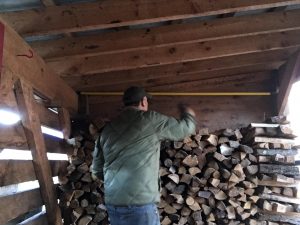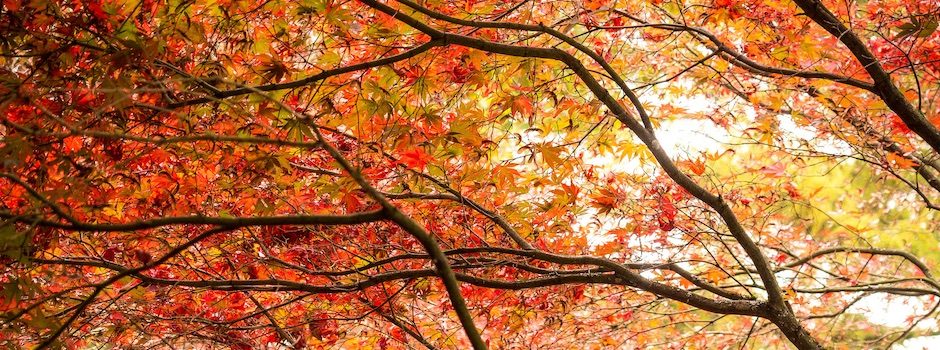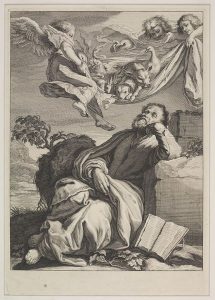If you wish, you can hear this sermon as it was preached in the pulpit of the United Church of Jaffrey. Simply click to the play button below.
Delivered at the United Church of Jaffrey
November 19th, 2017
Acts 10:9-16 | Excerpt from The Gastronomical Me by MFK Fisher
People ask me: Why do you write about food, and eating, and drinking? Why don’t you write about the struggle for power and security and about love, the way others do?… The easiest answer is to say that, like most other humans, I am hungry. But there is more than that. It seems to me that our three basic needs, for food and security and love, are so mixed and mingled and entwined that we cannot straightly think of one without the others. So it happens that when I write of hunger, I am really writing about love and the hunger for it, and warmth and the love of it and the hunger for it…and then the warmth and richness and fine reality of hunger satisfied…and it is all one.
— MFK Fisher. The Gastronomical Me
Rites of the Fall
Friday last, my task of wintering-up the woodshed was not in the least satisfactorily done, before, looking up, I discovered that the day had irrevocably leaned over toward evening.
At this time of year, and in these northern climes, the hours of daylight are precious.
I’d spent the last hour of light stacking cordwood, and if I was to succeed in my intention to stow my posthole digger, properly coil the hoses, and corrall the last of my wayward spades, I’d have to depend upon the aid of a flashlight to do it…
I look forward to these, the annual rites of the fall —
Stacking wood
Coiling hoses
Shutting off the outdoor spigot.
It’s sad…
You can’t cut back the sad remains of the Echinacea and Black-Eyed Susan…
Retire the lawn chairs to the basement,
And gather the scattered clothespins from the graying grass…
Without feeling, acutely, the end of summer.
No more the long lazy evenings that drift gradually into night.
No more the odd firefly investigating the shirtsleeves, dangling from the line.
Before us now… the short days that plunge suddenly into night.
The wind that moves in from the hills and whispers, hear and there, among the downed leaves.
Now, as I close up the chicken coop for the night, the naked trees stretch heavenward to tickle the Pleiades in the eastern sky…
There is an unmistakable sharpness in the air — a bracing chill.
This change –– this transformation from heat wave to cold snap…
From flourishing to dormancy
From ripple, to ice…
is a seasonal reminder that we must learn to be good at letting go…
a reassurance, built into the cycle of our lives, that there is no such thing as sadness without beauty…
Foreboding — that knowledge of the coming darkness — has within it a shiver of deep, creaturely awareness that we are a part — in life and in death — of something far greater, wilder, and more mysterious than we will ever understand.
We can know it, without understanding it fully.
This, perhaps, is one way to describe faith.
A knowledge that is not grounded on certainty, but felt through mystery.
Harvest Festivals
Autumn marks not only the end of the summer — it is also harvest time.
Seeds that germinated in the Spring soil,
flourished on the vine and in the fertile ground of midsummer,
come into ripe abundance as the air quickens and the days shorten.
And this seasonal truth — dear friends — is why we have a little harvest festival called Thanksgiving.
Because there was a time, before the invention of refrigerated shipping containers, when pumpkins, corn, cranberry, and root vegetables only entered our kitchens at this time of year…
and the resulting feasting was done with an awareness of lean time that would follow.
We may have our quaint traditions about Pilgrims
And Turkeys,
Apple pie
And friendly indians…
Of which there may be a kernel of truth, and, no doubt, a good deal of myth…
But all this — as “traditional” as we insist it is — is just the costume we have chosen to give to adorn the age old, world-wide phenomenon of the harvest festival…
A wikipedia page entitled “List of Harvest Festivals” includes 72 different regional festivals in all of the world’s continents — including 23 festivals in the Indian subcontinent alone.
Fascinated, I took to a little trip down this internet rabbit hole, and read about
the Nabbana festival in Bangladesh,
The Homowo festival in Ghana — “Homowo” by the way, means “To Hoot at Hunger.”
the Chuseok festival on the Korean peninsula,
And the Mithra festival celebrated in Iran.
And, while there is a great degree of variation regarding the customs observed in all of these festivals, there are three elements that all these festivals share in common.
In all the festivals, family gets together.
In all the festivals there is a feast.
And in all the festivals, thanks is given.
Sound familiar?
We recognize these impulses as central to our own harvest festival.
Perhaps we have stumbled upon something essential about being human…
Family plus food equals thanksgiving.
Perhaps this, too, is a way to describe faith:
When we are nourished, we connect, and when we connect, we become aware of our need to be thankful.
A Bigger We
We have stumbled upon two ways that this time of year helps us to describe our faith.
The first is a deep stirring.
The foreboding of this dark time is both beautiful and sad — and we know this truth, not through the certainty of the intellect, but through the presence of mystery.
The second is a social observation:
when the harvest comes, we come together…
and when we come together, we are moved by a deep impulse to give thanks.
And these to descriptions of faith, I think, bring us to this morning’s peculiar scripture reading.
Peter’s heavenly rooftop picnic.
Saint Peter is in Joppa — which is near the modern city of Tel Aviv.
He goes up to a rooftop to pray — it is near evening — about the sixth hour.
The text specifies, quite clearly, that Peter is hungry, and that food is being prepared…
and we can imagine that he can probably smell the food, where he is praying up on the roof.
But he does not go down and eat…
Instead he remains on the roof in prayer.
And as he prays, he falls into a trance and has a vision.
…the heaven opened, and something descending, like a great sheet, let down by four corners upon the earth. In it were all kinds of animals and reptiles and birds of the air. And there came a voice to him, “Rise, Peter; kill and eat.”
What a strange vision!
A picnic blanket descends from heaven
But the picnic blanket is not covered with delicious, non-threatening pumpkin pies and cranberry sauces.
No.
The picnic blanket is covered with “all kinds of animals and reptiles and birds of the air.”
And these animals must have been alive too — since the voice in the vision said “Rise, Peter; kill and eat.”
Peter, predictably, finds this prospect a little too threatening. He refuses to eat saying:
“No, Lord; for I have never eaten anything that is common or unclean.”
This response reveal to us that the problem Peter has with this heavenly picnic, is not that the animals and reptiles and birds of the air must be killed to be eaten.
The problem Peter has is that he considers this food common and unclean.
As a Jewish man, Peter has always eaten according to the Jewish dietary laws — laws that define certain foods as spiritually unclean.
The voice in the vision — the voice that Peter assumes to be the voice of God — refutes Peter’s objection:
“What God has cleansed, you must not call common.”
This peculiar scene — Peter’s heavenly rooftop picnic, is often cited, by biblical scholars, to be one of the key moments when Christianity began to transition away from Judaism.
Jewish dietary laws made eating a religious practice.
By not eating certain things, one could be identified as Jewish.
But the when the early followers of Christ began to spread the message of Jesus into communities beyond Israel, they became aware that it was important to eat with everyone.
Sound familiar?
In this practice — this practice of eating with everyone — they were following the Jesus, who famously shared his table with tax collectors and prostitutes.
In order to welcome strangers to the table, it is important that we accept what the stranger may bring to the table.
So when the voice in Peter’s vision says “What God has cleansed, you must not call common” —
Two things are being said:
Trust the mystery to provide.
And
Allow food to bring you together.
With its loosened dietary restrictions, the new religion of Jesus forged a bigger we.
A we that, as Paul described, knew
neither Jew nor Greek,
neither slave nor free,
neither male nor female;
for you are all one in Christ Jesus.
The Divine Stranger
As we go to our Thanksgiving tables,
Let us join with our loved ones,
Eat
And give thanks.
And as we give thanks, let us remember Jesus Christ
the walking man
On his way to Emmaus,
A stranger, Invited in.
And when — only when — the stranger comes in and breaks bread — only then, is the mystery revealed,
And he is recognized.
When we open our hearts
And make a bigger we.
The divine stranger
Is recognized, and we are saved.
Amen.


